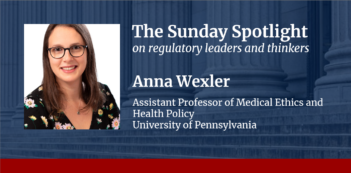
Lawsuits challenge the implementation of Obamacare.
Last year the Affordable Care Act (ACA) survived a challenge in the United States Supreme Court, but agencies’ subsequent actions implementing its provisions are now under further legal attack. Two separate sets of lawsuits have been filed against the U.S. Department of Health and Human Services (HHS) and the Internal Revenue Service (IRS) over ACA rulemakings mandating contraceptive coverage and providing insurance subsidies, respectively.
The suits against HHS, more than sixty of which have been filed, challenge a regulation stipulating that health plans must include birth control coverage. The contraceptive mandate requires all insurance providers to offer and pay for all Food and Drug Administration (FDA) approved sterilization procedures and contraceptive methods, including the morning-after pill. Only “religious employers” who meet narrow conditions, such as status as a church and purpose to inculcate religious values, are exempt from the mandate.
For one year, HHS is granting a “stay of enforcement” of the contraceptive coverage mandate against “non-exempted, non-profit religious organizations with religious objections to [contraceptive] coverage.” After that time, HHS promises that it will have developed “alternative ways” of providing contraceptive coverage without cost to those non-exempted, non-profit religious entities.
The complainants against HHS, most of whom are family business owners, contend that the contraceptive mandate “violates their First Amendment right to religious liberty by forcing them to provide a service they find immoral.” Some of the complainants attest that HHS defines “religious employer” too narrowly – consequently disqualifying too many religious organizations from obtaining the exemption. They also maintain that, even if HHS were to provide the contraceptive coverage to their employees without cost to them, the constitutional burden would remain. According to these complainants, the “burden goes beyond the mere use of money” because the HHA mandate facilitates what they view as “gravely immoral actions.”
The lower circuits are currently split on the issue. Some have dismissed the cases immediately, while others have granted temporary relief until the cases have been decided. Douglas Laycock, a law professor at the University of Virginia and a scholar on church-state conflicts, believes that the cases are “highly likely to end up at the Supreme Court.”
Although the contraceptive mandate is a small part of the healthcare law, it nonetheless carries considerable political significance. During Obama’s 2012 presidential campaign, the policy appears to have played a role in garnering support from women voters, while also raising the ire of social conservatives in the electorate.
Conversely, the court challenges filed against the IRS may be less politically significant, but they potentially pose a “more dangerous threat” to the viability of the ACA. The complainants in the litigation against the IRS are mostly small business owners who accuse the IRS of unlawfully expanding the ACA’s insurance subsidies.
The ACA gave each state the option to establish an insurance exchange, a marketplace where individuals may purchase health insurance. In states that declined, the federal government is to establish and run the exchanges. Complainants argue that residents of states with state-run exchanges are exclusively eligible for federal subsidies to purchase insurance whereas residents of states with federally-run exchanges should not be eligible.
The IRS regulation being challenged provides premium-assistance tax subsidies to individuals regardless of whether they reside in states that have opted not to establish and run their own exchanges. One of the two lawsuits challenging the rule alleges that the IRS regulation conflicts with the express language of the ACA. Conversely, the IRS contends that the ACA not only supports its interpretation, but also “relevant legislative history does not demonstrate that Congress intended to limit” the subsidies to state exchanges.
Simon Lazarus, senior counsel at the Constitutional Accountability Center, agrees with the interpretation of the IRS. However, he also fears that the United States Supreme Court would apply a “textualist” approach and strike the regulation down – if it were given a chance.
The lawsuits against both HHS and the IRS are likely to linger for a year or more, especially if any of the litigation does end up on appeal, bringing the health care reform law back before the Supreme Court.



